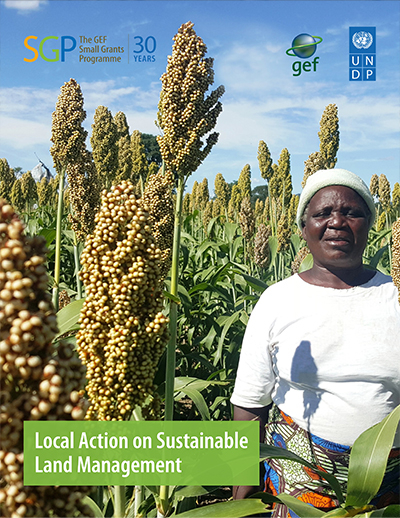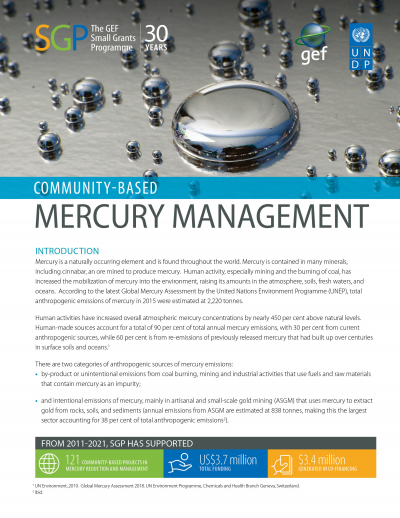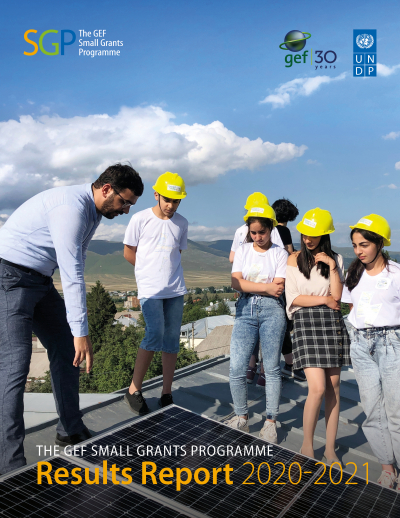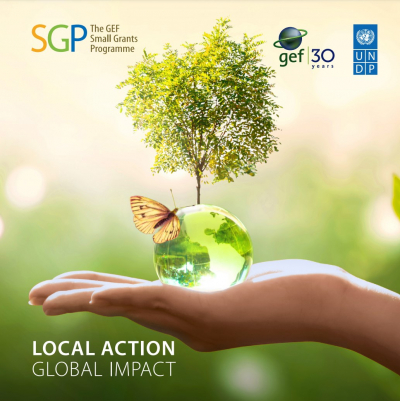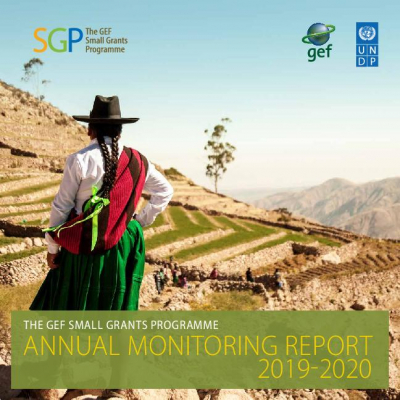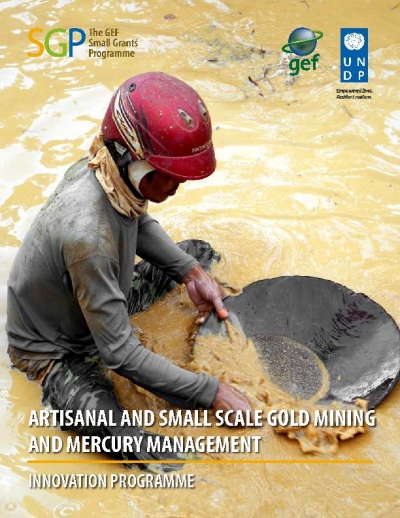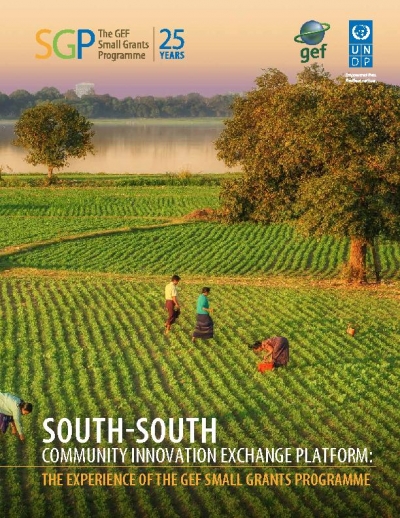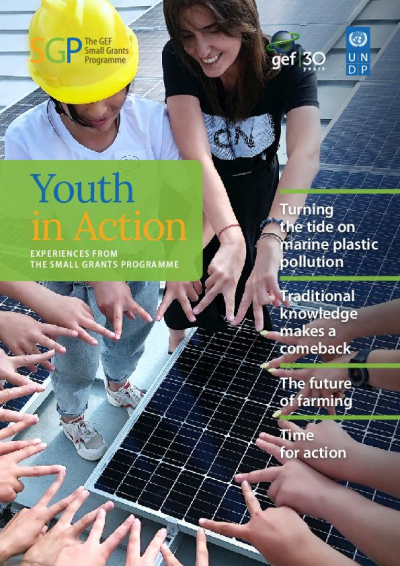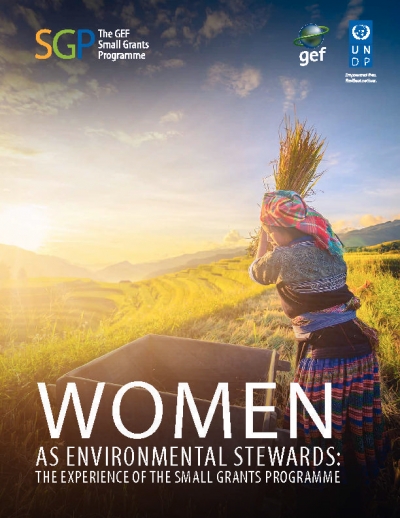1536 Documents found
This publication presents an updated overview of the Small Grants Programme's (SGP) community-based approach and portfolio in the area of sustainable land management, as part of the overall UNDP's related portfolio, with special attention to gender and youth and a spotlight on the innovative partnership with SOS Sahel International, focusing on the Sahel region. It also includes a selection of case studies to showcase best practices and lessons learnt.
This brochure presents an overview of SGP's community-based approach to the reduction, elimination, and prevention of mercury use, including examples of successful projects implemented in Mali, Ghana, Uganda and Nepal. SGP promotes safe handling of products containing mercury, seeking to pilot and test innovative community-based mercury reduction and management practices, in support of the implementation of the Minamata Convention at the community level, especially in artisanal gold mining.
The GEF Small Grants Programme (SGP) provides financial and technical support to civil society and community-based organizations on innovative community-driven initiatives that address global environmental issues – such as biodiversity loss, climate change mitigation and adaptation, land degradation, international waters, and chemicals and waste management – while improving livelihoods. This infographic reports presents a summary of the key results achieved over the reporting period 2020-2021.
This corporate brochure provides a brief overview of the Small Grants Programme and the results achieved by 2020.
For the past 10 years, local communities and societies have been investing in resilience-building with support from the Small Grants Programme (SGP), which is supported by the Global Environment Facility and implemented by the United Nations Development Programme, with partnership and funding from the Australian Government’s Department of Foreign Affairs and Trade (DFAT). By enabling local communities to adapt to the impacts of climate change based on their specific environmental, social, and economic contexts, the Community-Based Adaptation Programme (CBA) has helped enhance climate resilie...
This infographic reports presents a summary of the key results achieved over the reporting period 2019-2020
BROCHURE ABOUT THE ASGM INNOVATION PROGRAMME To support the implementation of the Minamata Convention at community level, in line with the strategies of the Global Environment Facility (GEF) and the United Nations Development Programme (UNDP) on chemicals and waste management, the GEF Small Grants Programme (SGP) seeks to pilot and test innovative community-based mercury reduction and management practices. These specifically address the prevention, reduction, and elimination of mercury use and contamination, and promotion of safe handling of mercury-containing products. Since 2011, SGP has sup...
This publication illustrates how SGP leverages South-South and triangular cooperation to tackle local challenges through peer-to-peer knowledge exchanges across different sustainable development issues and geographies. It features ten case studies with demonstrated solutions emerging countries around the world. The problems tackled are of importance not only locally but also within the context of national sustainable development and global environmental challenges, widening the appeal and relevance of these solutions for broader adoption.
As we collectively address the global climate and nature crises, it is absolutely critical to engage youth as agents of change, creative entrepreneurs and innovators. Through education, science and technology, young people are scaling up their efforts and skills to accelerate concrete actions. Through the support and partnership provided by the GEF Small Grants Programme (SGP), youth are acquiring knowledge and skills to build a more sustainable future, while actively engaging in developing a green and blue economy. This publication brings together great examples of youth innovations and inter...
In this publication, the GEF Small Grants Programme, implemented by UNDP, features women as environmental stewards in case studies about biodiversity conservation, climate change, land degradation, international waters and chemicals and waste management. These examples show action from the ground up and demonstrate the importance of investing in women’s leadership and technical skills for improved environmental benefits and sustainable development, while challenging traditional gender norms that often prevent women from taking leadership roles or from having access and control over the natur...
Page 153 of 154




